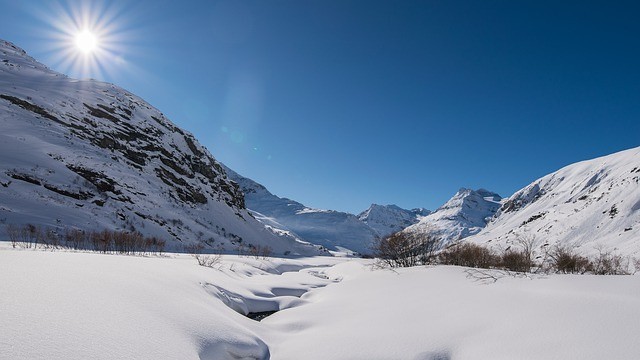
The last 150 years have seen our planet experience global warming at a level that erased natural global cooling, which occurred over the previous six thousand years, according to a significant new paleoclimatology study published on June 30 in the Nature journal Scientific Data.
The study showed that thousands of years of global cooling started in the last six and a half millennia when average worldwide temperatures were roughly 0.7° Celsius warmer compared to the middle of the 1800s. From that point onward, the accelerated emissions of greenhouse gases have increased the average worldwide temperatures to over 1° Celsius warmer than the mid-1800s.
The researchers from the Northern Arizona University SES or School of Earth and Sustainability collaborated with scientists from other institutions worldwide to determine the average global temperature during the Holocene, which encompasses the period from the Ice Age up to around 12,000 years ago.
Regents' professor and lead author of the study Darrell Kaufman says that past researches showed how our planet cooled slowly and naturally for a minimum of one millennium before the middle of the 1800s, which is the time when global temperatures went up along with increased greenhouse gas emissions.
The study compiled previous paleoclimate data and subjected it to statistical analyses. It showed that global cooling started around 6,500 years ago.
Assistant research professor and co-author Michael Erb said that the cooling, which followed peak warmth, was a subtle process that slowly progressed at about 0.1° Celsius every one thousand years. The cooling appears to be due to slow cycles in our planet's orbit that reduced summer sunlight in the region of the Northern Hemisphere. This, he says, culminated in a mini Ice Age in previous centuries.
Erb analyzed the reconstructions of the temperatures for the study. It seems the last decade which passed was the warmest period after the previous post-glacial period.
Associate professor and co-author Nicholas McKay developed part of the statistical analyses that synthesized the data gathered by the team all over the world. He noted that particular ten-year periods were not resolved in the reconstruction of the temperatures within the span of 12 millennia analyzed by their study, which made it hard to compare with recent decades.
However, he says, the last decade was probably cooler than the temperatures of the coming decades and beyond, likely continuing to surpass the 1° Celsius increase from pre-industrial temperature levels.
Kaufman said that possibly the last time that average worldwide temperatures reached 1° Celsius over 19th century levels could have been before the last Ice Age, roughly 125 millennia ago, when the sea level was about 20 feet higher than the present level.
According to assistant research professor and co-author Cody Routson, investigating natural temperature patterns will help reveal the processes which cause climate change; this information is crucial for our preparation for the climate change to come. He linked the warming of the Arctic to the decrease in precipitation in the mid-latitude regions.
Routson added that future climate largely depends on both human and natural factors. Better accounting of natural and anthropogenic factors will improve future climate change projections.
© 2025 NatureWorldNews.com All rights reserved. Do not reproduce without permission.





